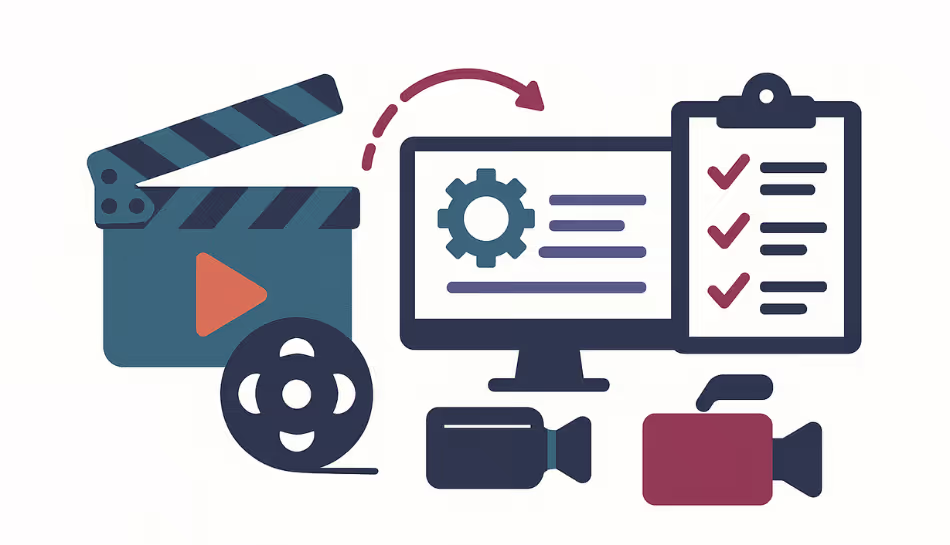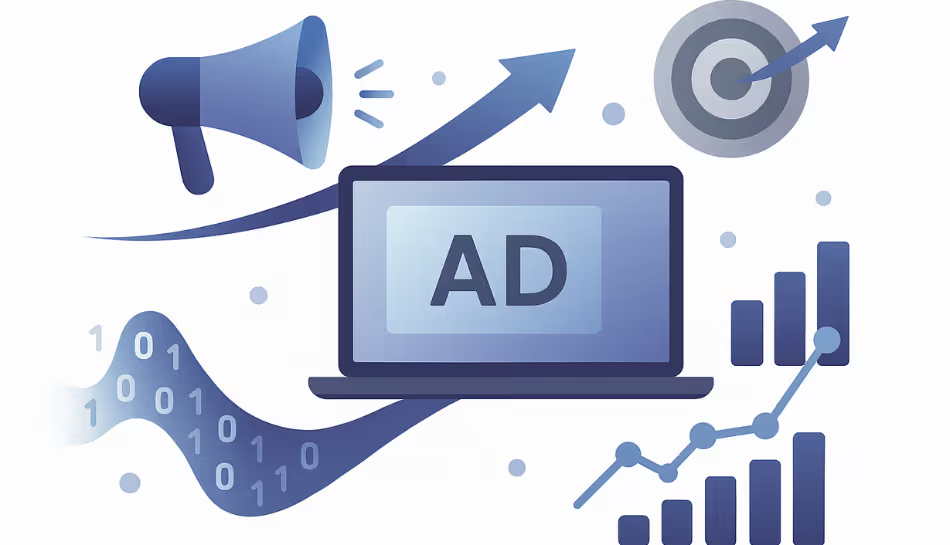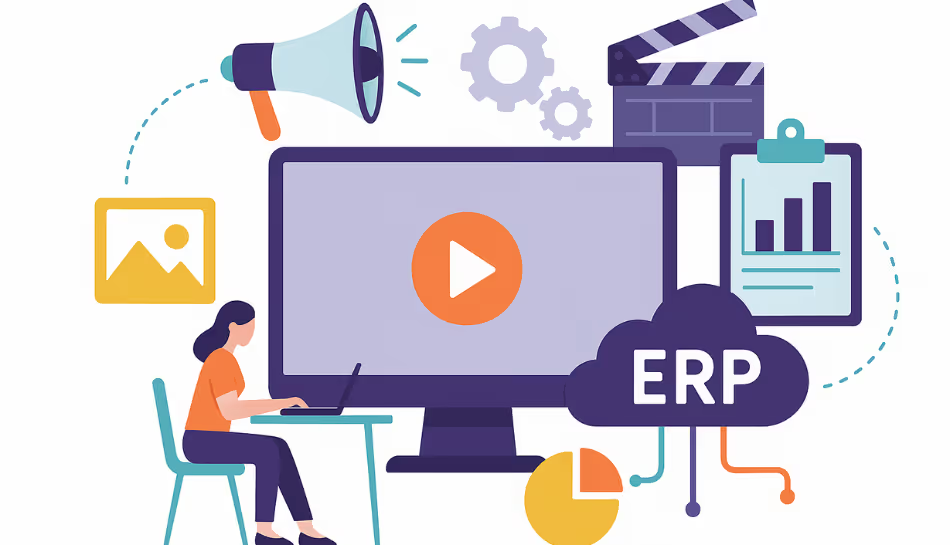Media companies deal with fast deadlines, creative collaboration, tight budgets, and constantly shifting project scopes. From pre-production to final delivery, managing every detail manually is a recipe for confusion, delays, and cost overruns.
Enter Media ERP software, your behind-the-scenes powerhouse that keeps everything running smoothly.
What is Media ERP Software?
Media ERP software is a central platform that handles everything from planning and scheduling to resource allocation, budget control, and post-delivery analysis. It’s designed specifically for media houses, production studios, content creators, broadcasters, and digital agencies.
Whether you're producing a TV series, a digital ad campaign, or a podcast, ERP keeps your entire workflow organised.
Why Media Projects Need ERP
Media projects are rarely straightforward. They often involve:
- Multiple departments (creative, finance, production, marketing)
- Freelancers and external vendors
- Complex timelines and approval chains
- Tight budgets that can’t afford surprises
Things fall through the gaps if there isn't a central system to link everything.
How ERP Simplifies Media Workflow Management
- Streamlines Project Planning: Set timelines, assign roles, manage tasks, all in one dashboard. ERP ensures everyone knows what needs to be done, by when, and who’s responsible.
- Manages Resources More Efficiently: Keep tabs on equipment usage, studio reservations, crew availability, and more. Media ERP helps you avoid clashes, double-bookings, and costly downtime.
- Tracks Budgets and Costs in Real-Time: You can monitor every expense against the original budget, get early warnings when costs spike, and keep projects profitable.
- Improves Collaboration Across Teams: Writers, editors, production staff, and finance teams can work on the same platform. Notes, approvals, feedback—everything stays transparent and accessible.
- Enables Better Delivery and Distribution Planning: Once the content is ready, ERP can also support planning for delivery deadlines, client versions, or channel-specific formats, reducing last-minute chaos.
The Bigger Picture: From Chaos to Clarity
Whether you’re running a news desk, an ad agency, or a film production company, media ERP software turns scattered efforts into a connected, strategic process. You no longer have to rely on spreadsheets, emails, or disconnected tools.
Everything happens in one place, and the result is faster delivery, better control, and fewer surprises.
Final Thought
Media isn’t just about creativity, it’s also about coordination. And in today’s competitive world, being organised is a serious edge. Media ERP software helps you take control of your entire production lifecycle... so you can focus on creating, not firefighting.
If your media projects are growing but your systems aren’t keeping up, it’s time to look into ERP. The difference is real, and measurable.



